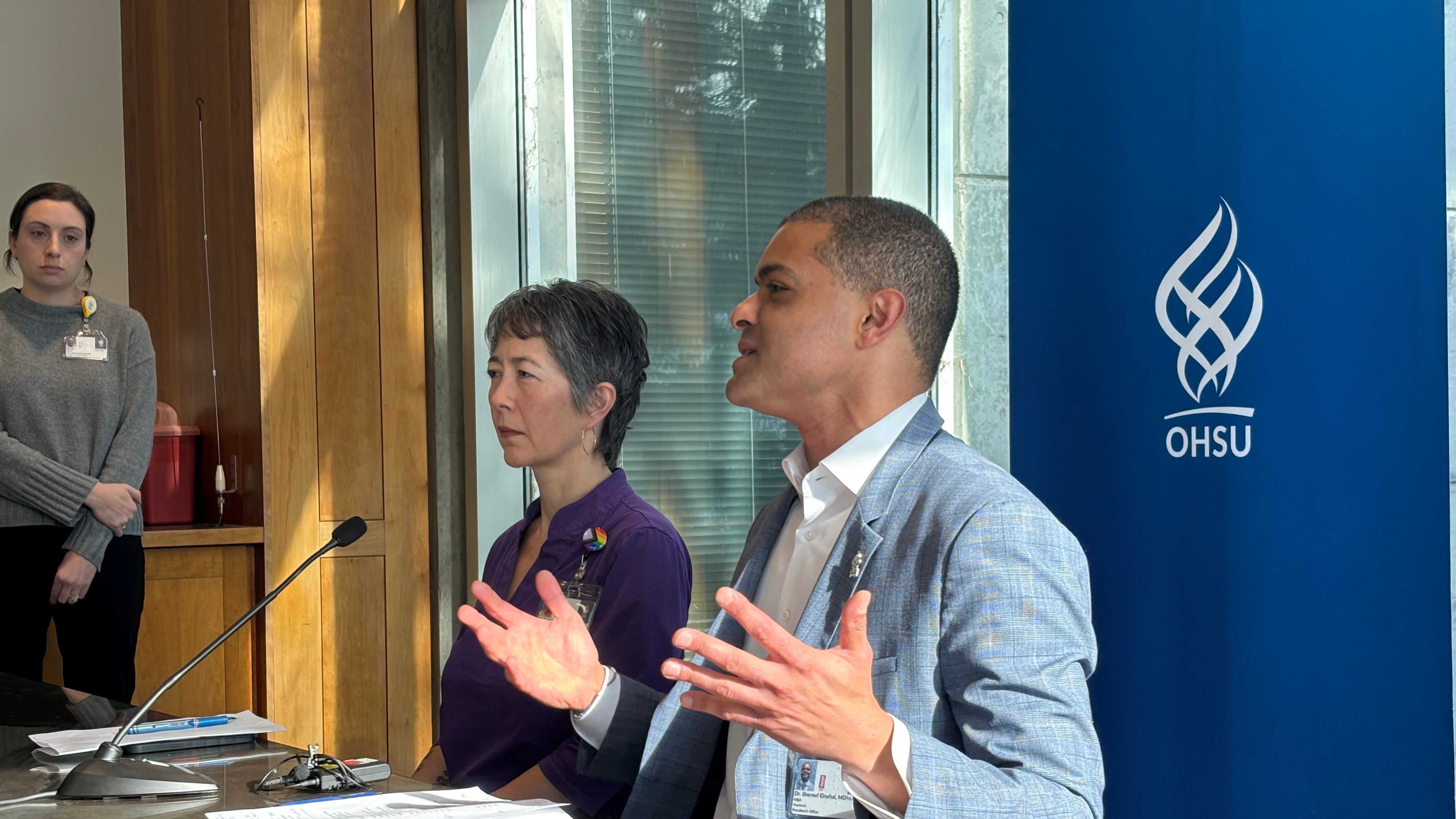In late September, Oregon Health & Science University’s president, discussing the changing regulatory scene, seemed particularly passionate about one obscure federal initiative in particular: “The 340B program must not be cut,” Dr. Shereef Elnahal told reporters at the time. “That is an extremely important program for the safety net mission that OHSU has. I know that the pharmaceutical industry feels different about this. There may be some in Congress who feel different about this. It would be disastrous to public health if the 340B program is cut or compromised in any way.”
A few weeks later, Elnahal’s concerns—shared by the Providence health system as well as Oregon’s congressional delegation—have leapt from the Federal Register toward reality.
Backed by the pharmaceutical industry, the Trump administration is piloting a new approach to a system that saves (or nets, depending on your perspective) tens of billions of dollars annually for hospitals that serve a high proportion of low-income patients.
Created in the 1990s, The 340B program allows qualifying hospitals to buy certain high-priced outpatient drugs at a steep discount.
While some Oregon hospitals, like those of Kaiser Permanente, don’t participate in the program, many others benefit mightily—and so, they say, do their patients.
Six of Providence Health & Services’s eight Oregon hospitals are 340B participants, for example. According to spokesman Gary Walker, this results in discounted drug prices for low-income patients, while generating savings that were in turn directed toward other services, like mental health, medication management, and community health initiatives.
The program has aided OHSU too. Spokeswoman Sara Hottman reports that in the most recent fiscal year, the institution would have paid $507 million more to pharmaceutical companies if it had to pay the pharma-set price. For context, this is nearly 10% of the OHSU system’s reported expenses in that period.
(A Legacy Health spokesperson declined to comment about the system’s participation in the 340B program.)
The program has fierce critics—and not just pharma companies—who argue some hospitals and middlemen use the program to profiteer. The critics point to instances, documented at times in the press and congressional investigations, in which hospitals divert drugs to ineligible patients, or buy the discounted drugs and charge low-income patients a large mark-up.
OHSU had its own recent clash with pharma on the matter. In 2024 it sued to block Johnson & Johnson from auditing its finances after, according to court filings, the drugmaker had reached out in May of that year to OHSU to discuss “the growth of your entity’s 340B utilization.” (The case was dismissed on technical grounds).
Out of this stew of mounting frustrations, a cohort of pharma companies last year made a play: require participating hospitals to pay full price for certain drugs and then request, where applicable, their discount after the fact.
Court interventions foiled this plan for a period, but the U.S. Department of Health and Human Services moved itself over the summer toward initiating a pilot along these lines.
Under the terms of the 340B Rebate Model Pilot Program, several pharma companies will sell certain drugs at full price to hospitals, which can then seek rebates. The Trump administration touts the idea as a measured and experimental response to key stakeholder concerns.
Elnahal, who once again brought up the changes the program faces at a press event this past week, has doubts. Despite its limited run and scope, the pilot program alone would require institutions like OHSU to respectively front more than $70 million to pharma companies, he said, sounding very skeptical that OHSU would get all that money back after the ensuing rebate troubles.
But his deeper worries looked further afield.
“Knowing that this is an explicit attempt by most drug companies to try to undermine this program, I am very concerned,” he said. OHSU would be in Medicaid-dependent communities no matter what. But he added, “Our ability to sustain ourselves in the future could be really compromised if this becomes the law of the land on 340B.”

